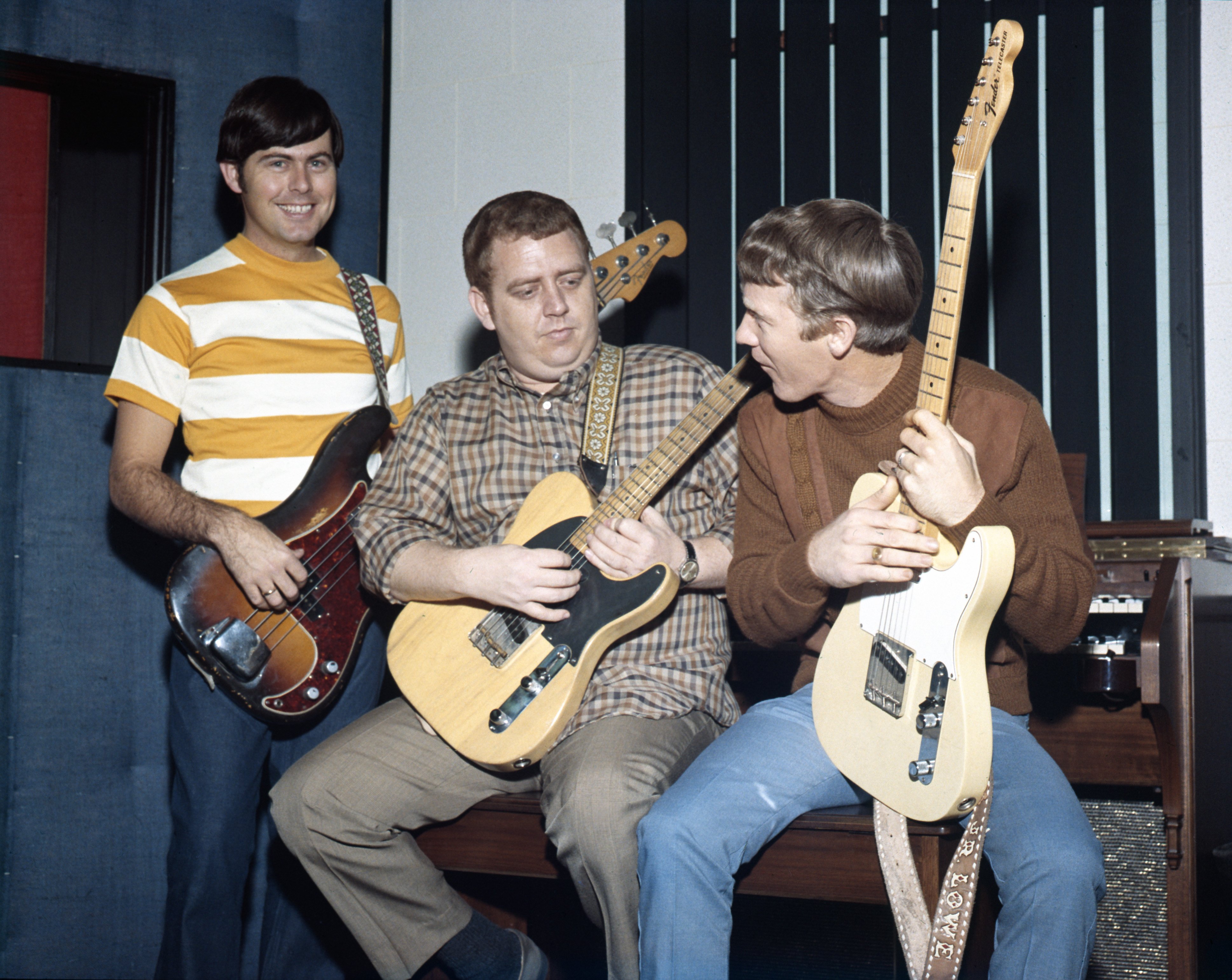Muscle Shoals guitarist Jimmy Johnson dead at 76
Johnson worked with everyone from the Rolling Stones to Lynyrd Skynyrd, Aretha Franklin to Wilson Pickett

Jimmy Johnson, a guitarist for the Muscle Shoals Rhythm Section who played on songs by everyone from Wilson Pickett and Aretha Franklin to the Rolling Stones and Lynyrd Skynyrd, has died at the age of 76.
His son, Jay Johnson, confirmed his father’s death in a Facebook post, writing, “He is gone. Playing music with the angels now.”
No cause of death has been revealed.
Johnson grew up in Alabama and discovered rock, blues and r&b at a young age. “I guess you'd say my inspiration was Chuck Berry,” he said in 2015. “My parents always tried to get me to play country music and I just didn't like it that much.
“I heard Chuck Berry do Johnny B. Goode and I knew that was what I wanted to do.”
He gigged around Alabama as a teenager and in the early Sixties found work at Rick Hall’s FAME studios, located in Muscle Shoals.
There, he contributed to numerous iconic recordings, including Percy Sledge’s When a Man Loves a Woman, Wilson Pickett’s Land of a Thousand Dances and Aretha Franklin’s Respect.
Get The Pick Newsletter
All the latest guitar news, interviews, lessons, reviews, deals and more, direct to your inbox!
In 1969 Johnson and FAME musicians Roger Hawkins, Barry Beckett and David Hood left FAME and founded Muscle Shoals Sound Studio.
That same year, the Rolling Stones recorded parts of Sticky Fingers there. Johnson is credited with engineering three songs on the album – Wild Horses, Brown Sugar and You Gotta Move.
Throughout the Seventies, artists ranging from Paul Simon to Cher to Lynyrd Skynyrd would record using Johnson and his fellow musicians, nicknamed the Swampers by Leon Russell, as their backing band.
In a 2014 interview Johnson explained that the nickname, later immortalized by Lynyrd Skynyrd in Sweet Home Alabama, “was based on all the water around here, the Tennessee River, you know that kind of thing – and it has inspired a lot of our music.
"People have always asked, 'Why did it happen here?' 'Tell us why?' And we would say, 'It’s in the water!' But we were honored to be a bunch of southern rednecks who were able to play so many different types of music. Most people thought we were black musicians, and they could not have given us a higher compliment.
Johnson later opened his own Swamper Sound Studio in Alabama, and served on the board for the Alabama Music Hall of Fame. He appeared in the 2013 documentary Muscle Shoals, which traced the story of studio and its impact on modern music.
He also continued to work into his later years. Prior to a 2015 show in Alabama billed as the Muscle Shoals Revue featuring the Swampers, he was asked what guitars he was currently playing.
“I'm running about eight or 10 guitars, about the same as when I was working on a regular basis,” Johnson said. “See we worked five to seven days a week and we'd basically cut 50 albums a year in the main thrust years. I'm using two mainly. Two different models of Telecasters. And I'm using a Gretsch 6120. It's the orange Gretsch and it's one of my favorite guitars too. And acoustic wise, I like a Martin D-28."
Asked how he felt about newer Alabama artists like Jason Isbell and Alabama Shakes, he said, "I love their music and I'm always thrilled to hear new records they come out with. It's the same way I always was when anybody local came to the scene and started cutting good records. I feel the same way now."
Rich is the co-author of the best-selling Nöthin' But a Good Time: The Uncensored History of the '80s Hard Rock Explosion. He is also a recording and performing musician, and a former editor of Guitar World magazine and executive editor of Guitar Aficionado magazine. He has authored several additional books, among them Kurt Cobain: Montage of Heck, the companion to the documentary of the same name.
“Even the thought that Clapton might have seen a few seconds of my video feels surreal. But I’m truly honored”: Eric Clapton names Japanese neo-soul guitarist as one to watch
“You better be ready to prove it’s something you can do”: Giacomo Turra got exposed – but real guitar virtuosos are being wrongly accused of fakery, too











![[from left] George Harrison with his Gretsch Country Gentleman, Norman Harris of Norman's Rare Guitars holds a gold-top Les Paul, John Fogerty with his legendary 1969 Rickenbacker](https://cdn.mos.cms.futurecdn.net/TuH3nuhn9etqjdn5sy4ntW.jpg)